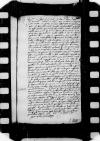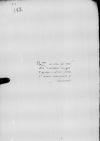Letter #2143
Ioannes DANTISCUS to Tiedemann GIESEHeilsberg (Lidzbark Warmiński), 1539-04-29
English register:
Dantiscus greets the addressee effusively and apologises profusely for rashly including excuses in his last letter for having signed it in a different place than usual. He did not foresee that Giese would interpret this as a reproach against himself, and that this worry would exacerbate his illness.
Dantiscus is not surprised that the Voivode of Kulm (Chełmno) [Johann von Lusian (Jan Luzjański)] has changed his mind on the matter of the [Royal Prussian] Diet, as he is familiar with his fickleness.
Through the royal courtier [Jan Gostyński], who delivered the call to the Diet, Dantiscus has written to the voivodes and castellans and to the Gdańsk (Danzig) Town Council and the Elbing (Elbląg) Town Council, telling them that if the plague continues in Marienburg (Malbork), they should wait for the King’s reply to his own letter on the matter of [changing the time and place of] the [Diet].
Manuscript sources:
Auxiliary sources:
Prints:
| ||||||||||||
Text & apparatus & commentary Plain text Text & commentary Text & apparatus
Reverendissimo in Christo Patri Domino, domino
Reverendissime in Christo Pater et Domine, frater et amice carissime ac honorande.
Salutem non minorem, immo auctiorem in praesenti, quam mea est, Dominationi Vestrae Reverendissimae a domino Deo opto et precor summopere, et hoc animo minime fucato aut simulate. Quod quidem eo teste scribo, cf. Vulg. Ps (G) 43.22 nonne Deus requiret ista? ipse enim novit abscondita cordis. Quoniam propter te mortificamur tota die; aestimati sumus sicut oves occisionis. ⌊qui novit abscondita cordiscf. Vulg. Ps (G) 43.22 nonne Deus requiret ista? ipse enim novit abscondita cordis. Quoniam propter te mortificamur tota die; aestimati sumus sicut oves occisionis. ⌋. Si fallo, triplici graviore, quam Dominationis Vestrae Reverendissimae est tertiana, corripiat me aegritudine.
Tantum abest, ut ego de addenda afflictione Dominationi Vestrae Reverendissimae cogitarim, cum ad illam cum hoc puero cf.
cf. Cic. Off. 1.81 Quamquam hoc animi, illud etiam ingenii magni est, praecipere cogitatione futura et aliquanto ante constituere, quid accidere possit in utramque partem et quid agendum sit, cum quid evenerit, nec committere, ut aliquando dicendum sit “non putaram”.; V. Max. 7.2.2 Scipio vero Africanus turpe esse aiebat in re militari dicere “non putaram”, videlicet quia explorato et excusso consilio quae ferro aguntur administrari oportere arbitrabatur. Summa ratione: inemendabilis est enim error, qui violentiae Martis committitur.; Sen. Dial. 4.31.4 Turpissimam aiebat Fabius imperatori excusationem esse “non putaui”, ego turpissimam homini puto. Omnia puta, exspecta ⌊Dicere, ut ille inquit, non putaram, prudentis non estcf. Cic. Off. 1.81 Quamquam hoc animi, illud etiam ingenii magni est, praecipere cogitatione futura et aliquanto ante constituere, quid accidere possit in utramque partem et quid agendum sit, cum quid evenerit, nec committere, ut aliquando dicendum sit “non putaram”.; V. Max. 7.2.2 Scipio vero Africanus turpe esse aiebat in re militari dicere “non putaram”, videlicet quia explorato et excusso consilio quae ferro aguntur administrari oportere arbitrabatur. Summa ratione: inemendabilis est enim error, qui violentiae Martis committitur.; Sen. Dial. 4.31.4 Turpissimam aiebat Fabius imperatori excusationem esse “non putaui”, ego turpissimam homini puto. Omnia puta, exspecta ⌋. Ego certe, cum cf.
Ceterum, quod magnificus dominus
cf.
Quod reliquum est, omitto, ne taedio Dominationem Vestram Reverendissimam afficiam.
Quam convalere et pristinae sanitati restitui meque ab ea amari opto summopere.
Ex
Reverendissimae Dominationis Vestrae frater deditissimus
[1 ]
The letters from Sigismund I Jagiellon cf. [2 ] Dantiscus’ letter to the

